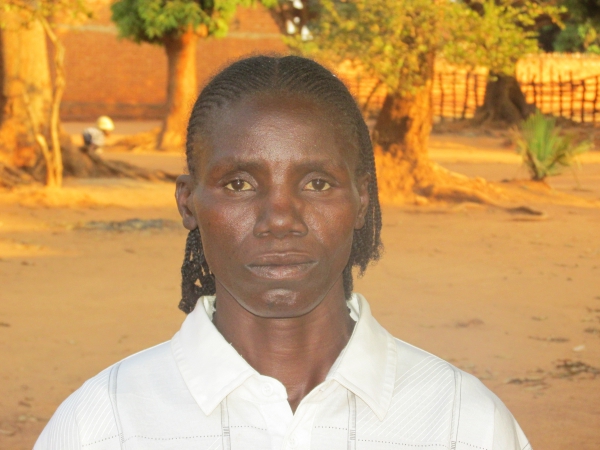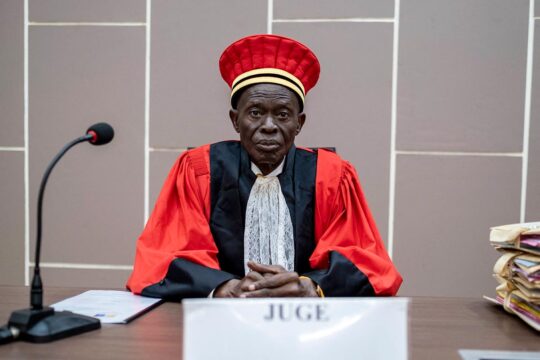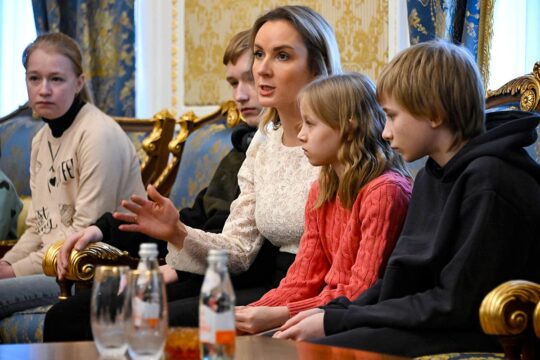“When I think – about the world, politics, freedom, literature, and so on – I do not feel like a woman at all,” wrote French philosopher Belinda Cannone. Her reflection is especially good to remember around International Women’s Day. This week we reported on three African women on different sides of justice and reconciliation.
In the Central African Republic (CAR), former Seleka rebel fighter Martine Bangue told Radio Ndeke Luka in Bangui how she had exchanged weapons for a mason’s trowel. Asked why she chose that profession, she replied: “I chose it because I wanted to be autonomous, to take care of myself. Also because many houses were destroyed in this country. And it is by working that you can support your children’s studies.”
Martine Bangue is a beneficiary of the UN disarmament and reintegration programme in her country. She says she does not regret her past, but also that she will never take up arms again. “I ask my brothers and sisters to think very hard before they decide to go and fight,” she told Radio Ndeke Luka. “We are all Central Africans. Let us stop trying to settle our differences through arms.”
She is nevertheless a rare case of conversion among rebels who continue to hold hostage the CAR, where the elected President’s authority generally stops outside the capital. Faustin Touadera is literally a president disarmed, in other words without a national army. In a sign of progress, one battalion of the Armed Forces is expected to be deployed for the first time in coming weeks in a peacekeeping role. “The mandate of this army we are building is not to make war on other Central Africans,” JusticeInfo’s Africa editor Ephrem Rugiririza quotes the President as saying. “It is to protect the security of all Central Africans, whether in the north, south, east, west or centre of the country.”
Simone Gbagbo
Another prominent African woman is Simone Gbagbo, former First Lady of Côte d’Ivoire, known as the “Iron Lady” but now behind bars in her country. Ephrem Rugiririza painted a portrait for JusticeInfo of this woman now accused of crimes against humanity but also, he writes, “undoubtedly one of the leading female figures of contemporary Ivorian history. Although visibly marked by jail, this fervent Evangelist, 67, refuses to give in. Like her husband, currently on trial before the International Criminal Court (ICC), she never misses an opportunity to restate her determination to fight the `French colonizer’, which she blames for her husband’s downfall.” Finding her political drive again before the court that is trying her, the former MP let loose. “As long as I live, I will continue my fight against the colonial power,” she told the court. “But if I die, the Ivorian people will continue the struggle. The aggression against us was international. The whole world conspired against Côte d’Ivoire,” she concluded in reference to the 2011 intervention by UN and French forces.”
To date, the Ivorian judicial authorities have only gone after Gbagbo supporters, although crimes committed by supporters of current President Alassane Ouattara during the crisis are also well documented by independent NGOs.
Fatou Bensouda
This week we also looked at the record of another African woman, International Criminal Court (ICC) Prosecutor Fatou Bensouda, who is half way through her mandate. She was Justice Minister under Gambian ex-president Yahya Jammeh, who led a dictatorial regime without justice, before she moved into international justice and then becoming its leading figure. Bensouda is an African accused of going after Africans too much, even if most of the current ICC cases were started by her controversial predecessor Luis Moreno Ocampo, for whom she was long time Deputy. “In four and a half years she has opened two new cases -- Mali and Georgia -- and issued an arrest warrant against Malian Jihadist Ahmed Al Mahdi for war crimes,” writes Stéphanie Maupas, our correspondent in The Hague. “Too little action to date, say observers, but she has numerous cases in the pipeline, notably against the Russians, British, Americans and Israelis. People wait impatiently for her expected opening of an Afghanistan case involving torture by US forces. They see it as a test and possibly a turning point for the ICC and international justice.”
Even critics in civil society quoted by JusticeInfo.net recognize Bensouda’s work. “Examining the conduct of the US, UK, Russia and Israel, even what might be seen as a very minimalist measure, it’s a shift,” says Canadian jurist William Schabas. And it is a real test for the ICC, which has a chance to show that it is not just going after Africans.







